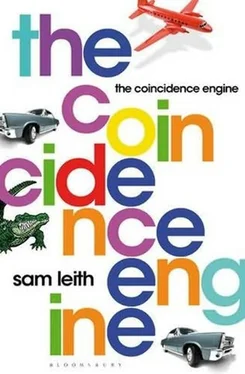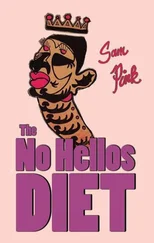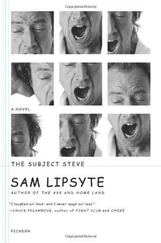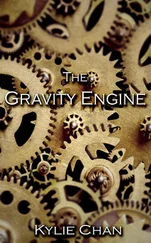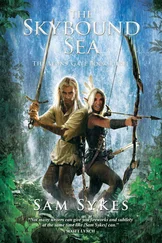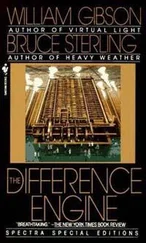‘Hmm,’ he said. He polished it with his thumb and held it up to the light. It winked. He put it in one of his pockets and walked on.
The sky was blank as bone. A few fat drops of rain slapped the faded tarmac. The dust began to rise.
My book doesn’t have a soundtrack, but if it did these songs would probably be on it. A few appear in the book (one of them over and over again), but each one captures either musically or lyrically something that seems to me to be present in one part of the book or another.
I don’t listen to music when I write, but sometimes it’s in the back of my mind. I like the spareness of songs. The best of them don’t strive to make sense, or give a complete picture. That suggestiveness was helpful to me.
1) ‘Road to Nowhere’ by Talking Heads
Alex is listening to the Talking Heads as he sets out on his trip across America. The song has a winning feeling of chipmunk-like cheerfulness in the face of futility and certain doom. Just the attitude we should all be adopting.
2) ‘Sanctus’, from Requiem Op 48 by Gabriel Fauré
Fauré’s ‘Sanctus’ knocks me clean out of my socks every time I hear it. The circling motif underneath it, doodling its way mournfully up to the sudden dazzling whoomph near the end, brass coming out over the top like light exploding out of all the windows of a building all at once. In an ideal world, this is the noise the Coincidence Engine would make when it’s building planes or bringing about the end of the multiverse.
3) ‘Mote’ by Sonic Youth
Like many Sonic Youth tunes, this song creates a complete world if its own, and the first two lines have always haunted me: sparrow through the meadhall with a scouring rock soundtrack. He’s more melancholy, but lyrically this is surely Banacharski’s signature tune.
4) ‘Sweet Dreams (Are Made Of This)’ by the Eurythmics
A song from Alex’s childhood. I love the chilly grandeur of the Eurythmics: the sense that Annie Lennox is telling you about something fascinating and seductive and sophisticated that doesn’t give a damn about your happiness.
5) ‘Mad World’ by Michael Andrews and Gary Jules
Funny/sad. And those dreams. Bree can empathise. Bree has those dreams too. And where ever would she be without her sense of humour?
6) ‘Nowhere Man’ by the Beatles
More than just a riddle song, ‘Nowhere Man’ fleshes out the whole business of nonexistence. The Coincidence Engine is full of nowhere men – and an infinite number more are pressing to be admitted. ‘He wasn’t there again today. I wish I wish he’d go away.’
7) ‘Ballad of a Thin Man’ by Bob Dylan
I can’t very well leave Dylan’s sinister, angular story-song out of the list, can I? My Mister Jones is less likely to have a pencil in his hand, though, than a cigarette.
8) ‘Minor Place’ by Bonnie ‘Prince’ Billy
I love this mysterious, sour-sweet song: half elegy and half lullaby. If ‘minor’ means a chord, as I think – among other things – it does, the place is as much a mood as a location. I think Nicolas, one way and another, is constantly travelling to his minor place.
9) ‘Hurt’ by Johnny Cash
Trent Reznor’s song was just waiting for Johnny Cash – who by then sounded about five thousand years old, and like he’d been through the mill a bit to boot – to sing it. Sunt lacrimae rerum, pals.
10) ‘Johnny Barleycorn’ by Frank Black
Cheer up: here comes the certain hope of resurrection… sounding like the hoedown at the end of the universe. ‘John Barleycorn’ is an allusion to whisky, which has a part to play in this story, and a folk image of the chthonic gods of death and resurrection. (He also plays a part in Jeff Noon’s Vurt mythos.) What goes around, this song tells us, comes around.
11) ‘Like A Hurricane’ by Neil Young
This song ends up being the device’s theme-tune. Not exactly sure why, except that I like it, and that it’s a love song and it involves (ha ha) a hurricane carrying a bit much metaphorical weight. The sense of a human relationship set in a cosmic scale, and of an identity being effaced ‘I’m getting blown away’ is in there too. Plus I’m a sucker for the way Neil Young’s voice struggles through that feedbacky guitar line.
12) ‘Bird Dream of the Olympus Mons’ by Pixies
Another song that creates its own world – a phantasmagoria somewhere between the Mojave and Mars. Years ago I drove through the desert playing Trompe le Monde over and over again. There’s no better driving music for the middle of nowhere. It makes you feel like you could have left Earth and not even know it had happened. And that would be the best thing ever.
At the very centre of E. M. Forster's A Passage to India there is a famous encounter with an echo in the Marabar Caves. 'Ou-boum,' says the echo – and to the listener in whom it strikes a strange sort of existential dread, it seems to be saying: 'Everything exists, nothing has value.'
It has always seemed to me that it's the first of these two propositions that's the really interesting one. What if everything really did exist? Somewhere among the ideas that are rattling round in the sub-basement of The Coincidence Engine is that one, tangled up with thoughts about an infinity of parallel universes, half-remembered bits of literary theory, philosophically negligible language-games, and the question 'What is a metre?' – to which nobody knows the answer.
Nobody knows everything, you see. Good old nobody. Quite the smart-aleck.
Long ago, I was bewildered and intrigued to learn that there was such a thing as the 'cardinality of infinities' – which is to say that some infinities are bigger than others. The infinity of whole numbers, for instance, is ipso facto bigger than the infinity of fractions because for every one whole number there are – well, let's just say lots – of fractions in between.
It also titillates me to think that, at the opposite end of the scale, there's more than one different way of not existing. My mum exists. My late grandfather does not exist – at least not in the sense that he did thirty years ago. Unicorns also do not exist – but they don't exist in a different way to that in which my grandfather doesn't exist. And a specific unicorn doesn't exist in a different way to that in which unicorns in general don't exist.
Characters in novels don't exist in a different way, too. And, if you credit the idea that fresh parallel universes calve off from our own at every moment, what about the versions of ourselves that turned left instead of right at the traffic lights? In what way do they not exist? And is it possible that the only reason for our own, fabulously improbable existence in this moment right now is that literally every alternative possibility has been exhausted in the infinity of other universes?
Of course, a lot of this turns on a question of language: as Bill Clinton said, 'It depends on what the meaning of the word "is" is.' But novels are made out of language, and you can do what you like with it in them. My characters live in a universe not too far away from this one – and where ideas and things, past and present, have got just a little bit muddled up.
We all know ghosts don't exist – that nobody comes back to haunt us after death. I find that spooky: 'As I was walking on the stair I met a man who wasn't there.' Or Wallace Stevens in those haunting lines with which he ends his short poem 'The Snow Man'. Nobody's watching: nobody's ever watching.
With special thanks to all who gave me encouragement – in particular, David Miller and all at Rogers, Coleridge and White, and Michael Fishwick, who saw the point of this before it existed and without whom it probably wouldn’t. Thanks to all at Bloomsbury, Kathy Fry and particular props to Colin Midson, Ruth Logan, Sophia Martelli and Alex Goodwin. And thanks to Umar Salam, for nurturing my maths-envy.
Читать дальше
